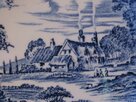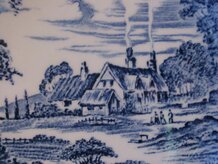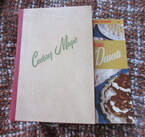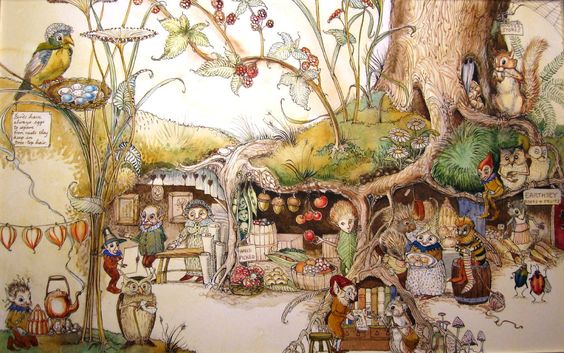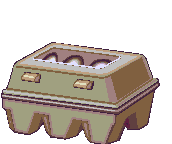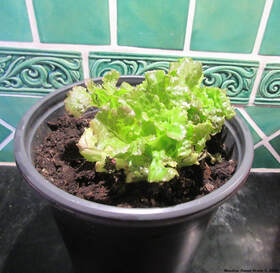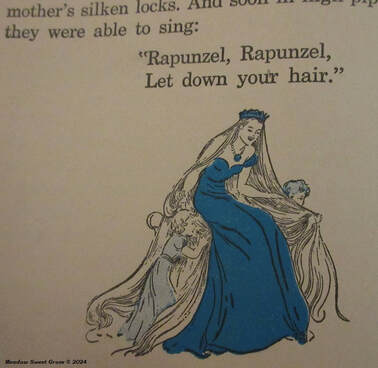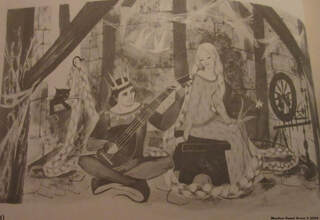THE FAIRY SHOP AT MEADOW SWEET GROVE
|
~ Offerings at The Fairy Shop ~ Frolicking Fairies |
Pre-loved! Puck Robin Goodfellow Fairy Porcelain Doll Green Earth Sprit Ornament Nature Figurine - Made in China
CA$9.99
Vintage! Fairy Tale A True Story DVD Cottingley Fairies Frances Elsie Magic Hoax Photography WWI
CA$3.99
Vintage! Flower Fairies of the Trees HC Book Poetry Cicely Mary Barker Frederick Warne - Made in England
CA$4.99
Brand New! Faerytale Oracle Cards Divination Magic Fairy Tales Lucy Cavendish Australian Designed - Printed in China
CA$32.99
Pre-loved! Flower Fairies Alphabet Coloring Book Cicely Mary Barker Frederick Warne Children - Printed in China
CA$5.99
FREE SHIPPING WHEN YOUR ORDER TOTALS $99 CDN!
Enter Coupon Code: FREESHIPPING at checkout and hit "Apply"
(Offer available in Canada & USA only)
FEATURED ARTICLES
|
~ Last time at Meadow Sweet Grove ~ Apple Pinwheels Here's an incredibly simple and delicious recipe. A nice dessert and they are also small enough for snacks and lunchboxes. I love vintage cookbooks and as I liked the ingredients in two recipes; I decided to combine them together into ... Continue reading: apple-pinwheels.html |
~ Finding Free Solutions On Your Grocery List ~ It would be an understatement to say grocery prices have gone up. Particularly when some of these items have not only doubled in price; but tripled; over just the last couple of years. I find Springtime especially expensive. Any food items that we saved from our kitchen garden harvest, like apples and dried herbs, have mostly been used up. Preserves like canned tomatoes & relish are getting low and likely the jam is all gone. So how can we get everything we need this time of year; and also end our grocery trip having spent a little less money? |
I start by looking at my shopping list. I keep mine on paper but some people use their phone or keep it in their head.
The food items are the most difficult. Sometimes you simply have to pay the price. But the best thing to do to avoid this (of course) is to buy these items on sale. I check the flyers (online & on paper) and only buy non-perishable staples at that time. If you can get your timing right (and have a few stores at your disposal), you can usually do this for perishable items as well. Some of the points programs are good too. But I'll only use them if they are truly free, offer a physical card and actually accrue enough points to offer money off, at least a few times a year. Don't forget to check the 50% off racks in the bakery, deli & frozen section at your stores. Store-made pizzas and flat breads are often 50% off, and can be easily frozen.
But what about the other items on your list? There are actually many items we buy that can be eliminated with creative solutions. Or there are lower cost options. Here's some ideas. I can't help you with the milk though; unless you have a neigbour with a cow. Actually, I can! Most recipes will work just fine if you use 1/2 the milk and make up the difference with water.
The food items are the most difficult. Sometimes you simply have to pay the price. But the best thing to do to avoid this (of course) is to buy these items on sale. I check the flyers (online & on paper) and only buy non-perishable staples at that time. If you can get your timing right (and have a few stores at your disposal), you can usually do this for perishable items as well. Some of the points programs are good too. But I'll only use them if they are truly free, offer a physical card and actually accrue enough points to offer money off, at least a few times a year. Don't forget to check the 50% off racks in the bakery, deli & frozen section at your stores. Store-made pizzas and flat breads are often 50% off, and can be easily frozen.
But what about the other items on your list? There are actually many items we buy that can be eliminated with creative solutions. Or there are lower cost options. Here's some ideas. I can't help you with the milk though; unless you have a neigbour with a cow. Actually, I can! Most recipes will work just fine if you use 1/2 the milk and make up the difference with water.
|
Try these freebies or re-usable solutions instead:
Bread: Buy from bakeries & smaller grocery stores - they are often cheaper and always have a day old/50% off rack. Lettuce: Buy a "living lettuce" with the roots attached--they really do regrow! Use it down to a small nub with a few short leaves attached, trim off any dead leaves. Re-pot it for your windowsill. The one in the picture is showing a lot of growth after only 4 days and I had trimmed it right down to the nub. In the summer, you can grow them in tubs outside. You'll get at least another full head's worth of lettuce. 2 for the price of 1! Bottled Water: Don't buy it. Its appeal is mostly its temperature. Buy a plastic juice jug & keep it full of tap water in the fridge. Sugar: Don't be shy to take 1 sugar packet when you buy a take-out coffee. It's part of the price. Dump it into your sugar bowl when you get home. |
|
Chicken Broth: Don't buy it. It's very easy to make your own. Boil up a chicken carcass or even a leg or wing saved from your last chicken meal, together with old vegetables (carrots, celery, onion) in the fridge. Add a bay leaf & pepper. Strain and freeze broth in margarine tubs. If you don't have time; save the pieces of chicken and vegetable odds & ends in separate plastic bags in the freezer and make as needed.
Potatoes: You pay almost the same now for 3 russet potatoes as for a whole 5 lb bag which usually holds a dozen or more. Keep them in a cold place. If they go soft, make mashed potatoes or slice them up for home fries. Save one or two in a dark cupboard to plant in the late Spring! Once it has a couple of roots (or even a sad looking leaf!); it's ready to plant. Potatoes will grow in a large deep pot if you don't have much garden space. Put some dirt on the bottom of the pot, plant the potato near the bottom with leaf partially exposed and place in a sunny spot and keep gently watered. Keep adding dirt on top as it grows. You'll get at least 5 potatoes for every one you plant. |
Plum Sauce/Soy Sauce/Ketchup: Hey, you pay for those little packets the restaurant includes in your order when you've treated yourself to take-out! Save them in a bowl in the fridge. You only need 1 or 2 soy sauce packets to dress up rice. Plum sauce is great for dipping chicken & fries but a few packs also works nicely in a stir fry. We all know what to do with the ketchup! But it's also great on top of meatloaf mixed together with a little brown sugar & dried mustard. These little packages also work great in lunch boxes.
|
Composting Bags: Don't buy them. Most cities that collect "green" waste on garbage day will accept food waste in brown paper or newspaper. Wine sleeves, take-out bags & free newspaper flyers are brilliant for this use.
Parcel Paper: Cut the bottom off of grocery bags and you have a perfect flat sheet for wrapping. Saran Wrap/Freezer Bags/Ziplocs: Use containers & crockery with lids and reuse bread, burrito and plastic vegetable bags. Window Cleaner: A drop of dish soap or bubble bath in lots of water works great & there's no harmful ammonia smell. Bathroom Cleaner: Save those almost empty shampoo or bubble bath bottles, add water & use to clean sinks & tubs. When you go over your shopping list, check each item and see if there's a free solution you hadn't thought of before. Or try and find a lower cost option. Happy Shopping .. and Saving! |
Meadow Sweet Grove © 2024
FOLKLORE & MAGIC
|
There are a lot of strong girls in fairy tales who turn into strong women. Rapunzel is one of those strong girls.
The story goes that the King's son happens to hear Rapunzel singing in the tower. Enchanted by her beautiful voice (in itself a magic); he climbs her long hair to the tower window and visits her often. Between them, they devise a way for her to escape old mother Gothel (the witch who imprisoned her). He brings silk every day for Rapunzel to weave into a ladder. Unfortunately, during this time, she is unable to hide her pregnancy and, in a fit of rage (disappointment?), the witch cuts off Rapunzel's golden hair and banishes her to the desert. There, alone, she gives birth to her twins, a boy and a girl. (The pregnancy version is usually sanitized in most re-tellings to Rapunzel letting slip to old mother Gothel that she has had a male visitor.) Meanwhile, her poor husband, tricked by the witch, climbs up Rapunzel's severed hair to the tower window and is confronted. His eyes are "cat"* scratched out; either by the witch herself, or when he jumps from the tower into the thorn bushes below (another downgrading). He wanders, blind, through the wilderness for over a year (sometimes several years), until one day he hears his love singing. Rapunzel holds him and her tears drop into his eyes; instantly healing them. So here we have this incredible girl, surrendered by her parents, cast out by her "guardian", facing pregnancy and childbirth alone; who grows into woman, mother and healer ... all by her own inner strength (initiated by the catalyst of the Prince ie the force of Mother Nature). |
*Interesting Note: Some versions reference old mother Gothel gloating to the King's son that the "singing bird (Rapunzel) no longer sits in her nest, for the cat has got her and will scratch your eyes out as well!"
Since in one version, the witch scratches his eyes out herself; I like to think mother Gothel is referencing her ability to shapeshift into a cat. Or perhaps a long forgotten familiar plays a role in this tale? There is allusion in the illustration below, showing a cat spying on Rapunzel and her lover. |
I enjoy comparing versions of fairy tales and collecting alternate versions as I find them. I have at least six print versions of Rapunzel ranging back to a 1909 Folio Society reprint. "Grimm's Grimmest" has research into the oldest known version. There are delightful differences in each one.
However, I'm not fond of the most latest incarnations. The newest version of Rapunzel (2013) I happened on is particularly disappointing. It is altered to the point of removing most of Rapunzel's strength and even some of the magical power of the other two women. In this version, Rapunzel's parents are "poor" and need to eat the rampion in the witch's garden to survive (a political insertion). This removes either the weakness/magical ability of her own mother/father or the witch's magic; as in all other versions, the Rapunzel's mother spies the rampion growing in the witch's garden below her window and is seized with a desire to make a salad of it. It also removes the devotion/weakness of her husband (or the magical spell woven over him) who then brings his wife many delicacies to tempt her appetite. Nothing, however, will satisfy her but the witch's rampion so he steals it from the garden and, when caught by the witch, surrenders Rapunzel in trade. Now, this leads me to believe one of three possibilities: 1. the rampion had been magically cursed by the witch to trap the young mother-to-be, 2. Rapunzel's mother was weak/selfish, or 3. she had pregnancy cravings! In most newer versions, Rapunzel may give birth and care for her babies alone in the wild until she is found by her lover; but in many this has been removed entirely or she has children only after the King's son finds her and they reunite with her parents. (She does at least, it seems, always heal her husband's eyes.) It is a rather sad and ironic dismissal of Rapunzel's female strength in today's time in history.
So I much prefer the brave Rapunzel. The imprisoned girl who, twice deprived of motherly role models from both her own inadequate mother and her over-protective adoptive mother; grows into a strong woman, survives the wilderness, endures childbirth alone, becomes a proper mother to her own babies, and heals her lover of the pains he suffered on her behalf.
Rapunzel is a "coming of age" fairy tale of a maiden who triumphs beautifully in all three stages of womanhood. The two men act as catalysts/helpers and are usually at the mercy of being bewitched by the three women in the story - maiden, mother and crone.
Brave Rapunzel! Survivor, Mother, Healer.
However, I'm not fond of the most latest incarnations. The newest version of Rapunzel (2013) I happened on is particularly disappointing. It is altered to the point of removing most of Rapunzel's strength and even some of the magical power of the other two women. In this version, Rapunzel's parents are "poor" and need to eat the rampion in the witch's garden to survive (a political insertion). This removes either the weakness/magical ability of her own mother/father or the witch's magic; as in all other versions, the Rapunzel's mother spies the rampion growing in the witch's garden below her window and is seized with a desire to make a salad of it. It also removes the devotion/weakness of her husband (or the magical spell woven over him) who then brings his wife many delicacies to tempt her appetite. Nothing, however, will satisfy her but the witch's rampion so he steals it from the garden and, when caught by the witch, surrenders Rapunzel in trade. Now, this leads me to believe one of three possibilities: 1. the rampion had been magically cursed by the witch to trap the young mother-to-be, 2. Rapunzel's mother was weak/selfish, or 3. she had pregnancy cravings! In most newer versions, Rapunzel may give birth and care for her babies alone in the wild until she is found by her lover; but in many this has been removed entirely or she has children only after the King's son finds her and they reunite with her parents. (She does at least, it seems, always heal her husband's eyes.) It is a rather sad and ironic dismissal of Rapunzel's female strength in today's time in history.
So I much prefer the brave Rapunzel. The imprisoned girl who, twice deprived of motherly role models from both her own inadequate mother and her over-protective adoptive mother; grows into a strong woman, survives the wilderness, endures childbirth alone, becomes a proper mother to her own babies, and heals her lover of the pains he suffered on her behalf.
Rapunzel is a "coming of age" fairy tale of a maiden who triumphs beautifully in all three stages of womanhood. The two men act as catalysts/helpers and are usually at the mercy of being bewitched by the three women in the story - maiden, mother and crone.
Brave Rapunzel! Survivor, Mother, Healer.
Bibliography: Fairy Tales, (retold by Katharine Gibson) Whitman Publishing Company, Racine, USA, 1950; The Brothers Grimm - The Complete Fairy Tales, Wordsworth Editions Ltd., Great Britain, 1997; Grimm's Fairy Tales (taken from German Popular Stories, 1823 & translated by Mrs. Edgar Lucas in 1909, Constable & Co. Ltd., reprinted 2003 by The Folio Society; Grimm's Grimmest, Intro by Maria Tatar, Chronicle Books, USA, 1997; Old Friends and Lasting Favorites, edited by Bryna & Louis Untermeyer, Golden Press, Inc., New York, USA, 1962; My Treasury of Princess Stories, Igloo Books Ltd. 2013, USA.
Meadow Sweet Grove © V. Buchanan, 2024

Did you know that articles from past weeks are archived in my Blog? Check it out here: musings-on-mother-earth-on-earth-day.html




